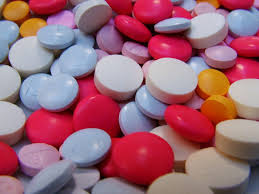Symptom Finder - Anosmia
ANOSMIA OR UNUSUAL ODOR
Anatomy is an excellent method of recalling the possible causes of anosmia and unusual odors.
1. Nasal passages: Focusing on the nasal passages, one can recall upper respiratory infections, allergic rhinitis, chronic rhinitis of smoking and/or overdose of decongestants, polyps, sinusitis, and nasopharyngeal carcinomas.
2. Olfactory nerves may be affected by fracture of the cribriform plate or neoplasms.
3. The olfactory groove may be affected by trauma, neoplasm (particularly a meningioma), or cerebral abscess.
4. Cerebrum: Considering the cerebrum will prompt the recall of general paresis, encephalitis, basilar meningitis, multiple sclerosis, and tumor of the frontal lobe. It should also help recall epilepsy, cerebral aneurysms, and migraine. Unfortunately, this method will not help recall the various drugs such as captopril and penicillamine that may cause anosmia. It will also not prompt the recall of hysteria and various systemic diseases (hypothyroidism, diabetes, renal failure, hepatic failure, and pernicious anemia). By using the mnemonic VINDICATE these will not be missed.
Approach to the Diagnosis
This symptom is often delusional so a psychiatrist may need to be consulted at the outset. If the disorder is the result of an acute infectious process, nothing needs be done. If it is associated with trauma or there has been a gradual onset, it is important to get a CT scan to rule out skull fracture or neoplasm. It is essential to rule out drug and alcohol use at the outset by a careful history and urine screen.
A good nasopharyngeal examination and nasopharyngoscopy must be done if local disease is suspected. These may need to be complemented by x-rays or CT scan of the sinuses. Systemic disease can be ruled out by a CBC, chemistry panel, thyroid profile, serum B12 test, glucose tolerance test, and liver profile. If epilepsy is suspected, a wake-and-sleep EEG needs to be done.
Other Useful Tests
1. Neurology consult
2. Otolaryngology consult
3. MRI of the brain (brain tumor)
4. Nasal smear for eosinophils (allergic rhinitis)
5. ANA titer (collagen disease)
6. Spinal tap (multiple sclerosis)
Anatomy is an excellent method of recalling the possible causes of anosmia and unusual odors.
1. Nasal passages: Focusing on the nasal passages, one can recall upper respiratory infections, allergic rhinitis, chronic rhinitis of smoking and/or overdose of decongestants, polyps, sinusitis, and nasopharyngeal carcinomas.
2. Olfactory nerves may be affected by fracture of the cribriform plate or neoplasms.
3. The olfactory groove may be affected by trauma, neoplasm (particularly a meningioma), or cerebral abscess.
4. Cerebrum: Considering the cerebrum will prompt the recall of general paresis, encephalitis, basilar meningitis, multiple sclerosis, and tumor of the frontal lobe. It should also help recall epilepsy, cerebral aneurysms, and migraine. Unfortunately, this method will not help recall the various drugs such as captopril and penicillamine that may cause anosmia. It will also not prompt the recall of hysteria and various systemic diseases (hypothyroidism, diabetes, renal failure, hepatic failure, and pernicious anemia). By using the mnemonic VINDICATE these will not be missed.
Approach to the Diagnosis
This symptom is often delusional so a psychiatrist may need to be consulted at the outset. If the disorder is the result of an acute infectious process, nothing needs be done. If it is associated with trauma or there has been a gradual onset, it is important to get a CT scan to rule out skull fracture or neoplasm. It is essential to rule out drug and alcohol use at the outset by a careful history and urine screen.
A good nasopharyngeal examination and nasopharyngoscopy must be done if local disease is suspected. These may need to be complemented by x-rays or CT scan of the sinuses. Systemic disease can be ruled out by a CBC, chemistry panel, thyroid profile, serum B12 test, glucose tolerance test, and liver profile. If epilepsy is suspected, a wake-and-sleep EEG needs to be done.
Other Useful Tests
1. Neurology consult
2. Otolaryngology consult
3. MRI of the brain (brain tumor)
4. Nasal smear for eosinophils (allergic rhinitis)
5. ANA titer (collagen disease)
6. Spinal tap (multiple sclerosis)

